




How Does the Commutative Property Simplify Multiplication?
Welcome to the world of magic – Maths Magic. Wondering how maths can be magic? To know that, you have to dive deep into the world of maths. To start with, let’s start with brushing up ‘what is multiplication?’ Multiplication is a process that will help you to understand the result of the combination of groups of equal size. It is also a process of shortening the repetitive addition. For example: 2 + 2 + 2 + 2 = 8 can be written as 2 × 4 = 8.

Multiplication as Repetitive Addition
There are six properties of multiplication: Closure property, Commutative property, Associative property, Distributive property, Multiplication by zero and Multiplicative identity. In this article, we will learn in brief about the Closure property, Associative property, Distributive property, Multiplication by zero and Multiplicative identity and in detail about the Commutative property. Let’s start.
Closure Property of Multiplication
The Closure Property of Multiplication states that if two whole numbers a and b are multiplied, then their result will also be a whole number. In simple words, a × b will be the whole number for the whole numbers a and b.
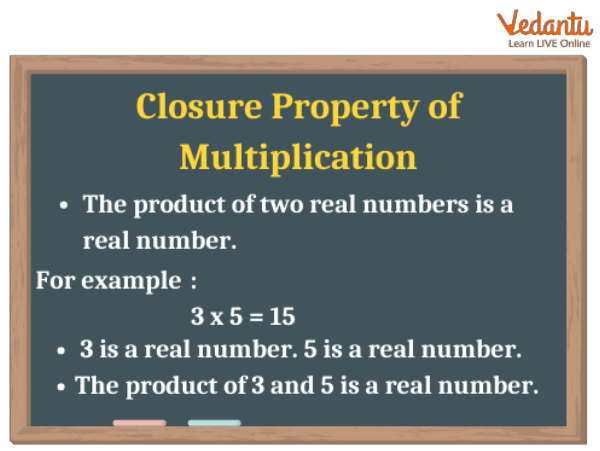
Closure Property of Multiplication
Associative Property of Multiplication
The result of the product of three or more numbers remains the same irrespective of their grouping. For example, (a × b) × c = a × (b × c).
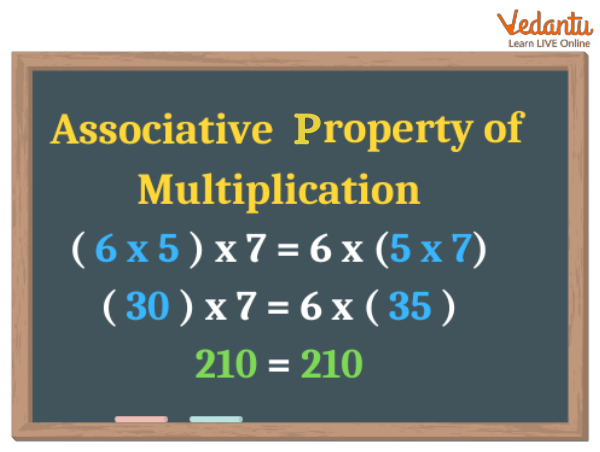
Associative Property of Multiplication
Distributive Property of Multiplication
The distributive property of multiplication states that if a, b and c are three numbers then,
a × (b + c) = (a × b) + (a × c).
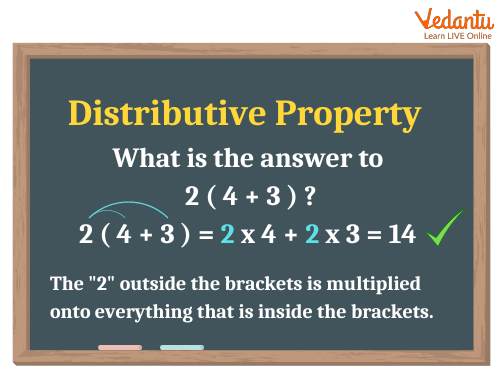
Distributive Property of Multiplication
Multiplication by 0
This is the most interesting property of multiplication. This property states that whenever any number is multiplied by 0, the result will be 0. In a simple way,
0 × anything = 0
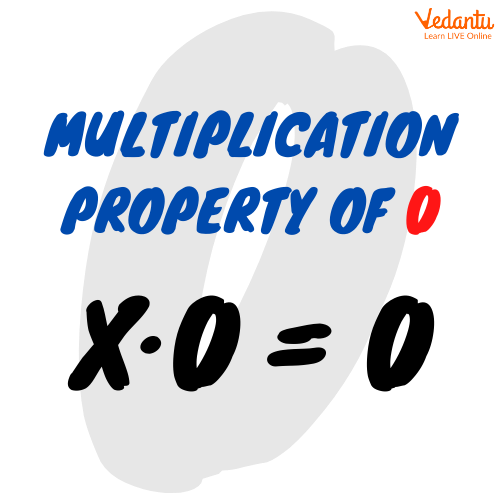
Multiplication by 0
Multiplicative Identity
The multiplicative identity states that if we multiply any number with 1, the answer is the number itself. In a simple way,
1 × a = a; 1 × b = b; 1 × c = c and so on.
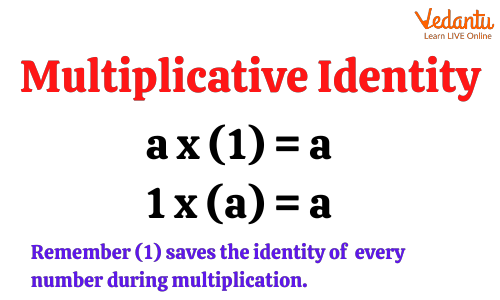
Multiplicative Identity
Commutative Property of Multiplication
The commutative property of multiplication states that changing the order of the numbers while multiplication does not change the result. In simpler words, whether you multiply a with b or b with a, the result will be the same. The order does not matter while multiplication. Example:
2 × 3 = 6 and
3 × 2 = 6
Exercise on Commutative Property of Multiplication
Here are a few questions for you to solve:
2 × _____ = 4 × _____ = 8
3 × _____ = 5 × _____ = 15
6 × _____ = 3 × _____ = 18
5 × _____ = 7 × _____ = 35
8× _____ = 6 × _____ = 48
9 × _____ = 8 × _____ = 72
4 × _____ = 5 × _____ = 20
7 × _____ = 3 × _____ = 21
5 × _____ = 9 × _____ = 45
2 × _____ = 8 × _____ = 16
Answers:
2 × 4 = 4 × 2 = 8
3 × 5 = 5 × 3 = 15
6 × 3 = 3 × 6 = 18
5 × 7 = 7 × 5 = 35
8 × 6 = 6 × 8 = 48
9 × 8 = 8 × 9 = 72
4 × 5 = 5 × 4 = 20
7 × 3 = 3 × 7 = 21
5 × 9 = 9 × 5 = 45
2 × 8 = 8 × 2 = 16
Quick Facts on Commutative Property
Did you enjoy learning the properties of multiplication? You know, we have a lot more for you. You can explore other topics of mathematics as well. Don’t wait anymore. Explore now and enjoy your learning!
FAQs on Commutative Property of Multiplication Explained
1. Are all the arithmetic operations commutative?
No, only addition and multiplication have commutative properties. The other arithmetic operations are non-commutative i.e., changing their order changes the result.
2. How many properties are there for multiplication?
There are six properties of multiplication. They are
Closure property,
Commutative property,
Associative property,
Distributive property,
Multiplication by zero and
Multiplicative identity.























